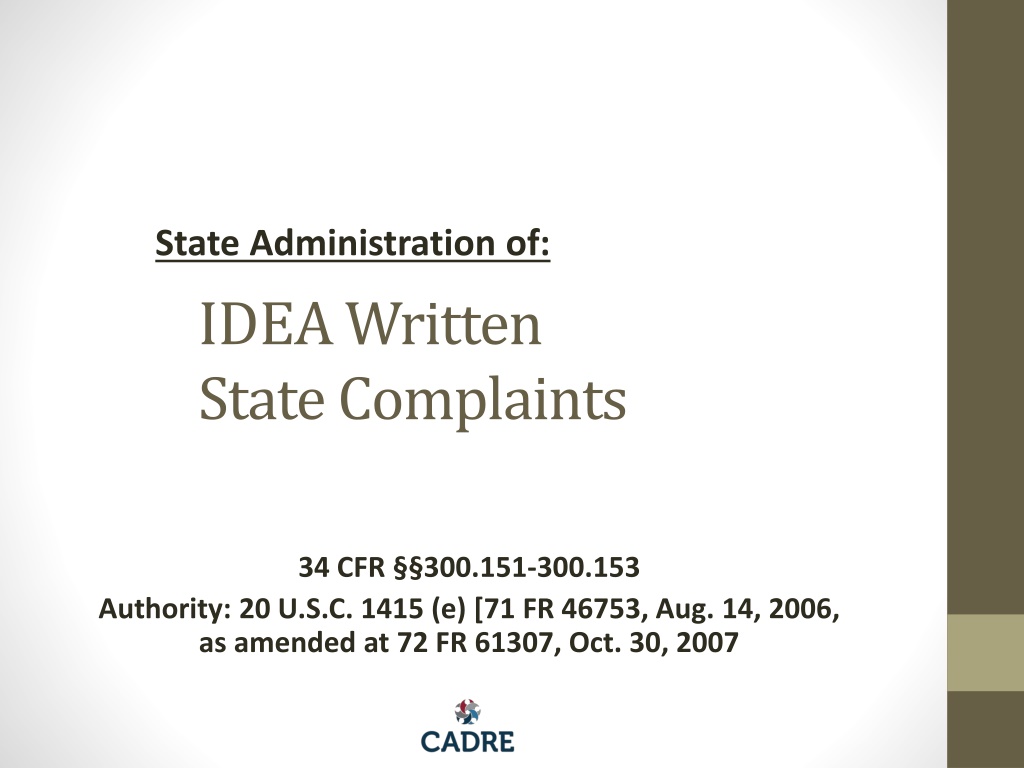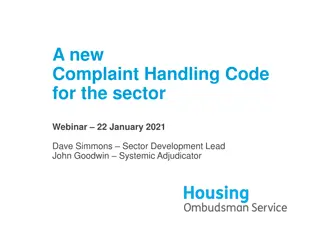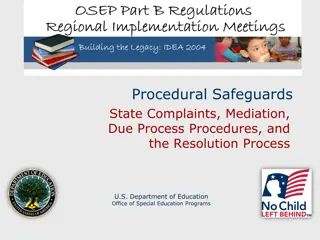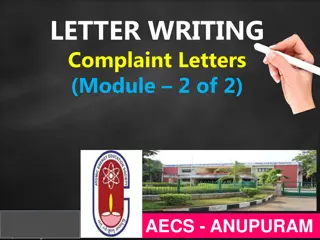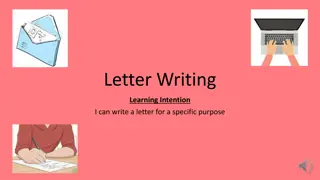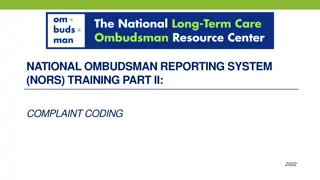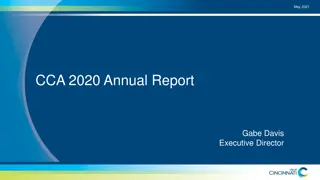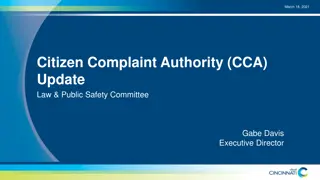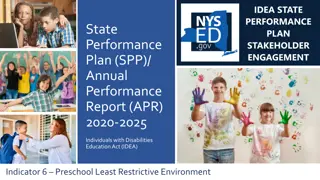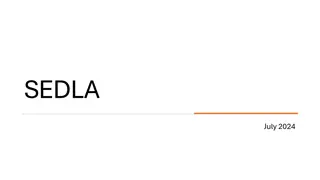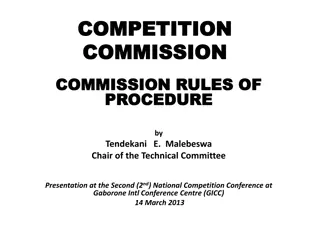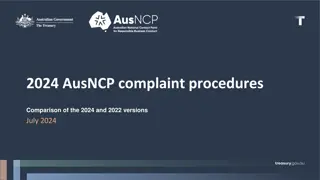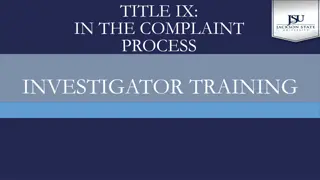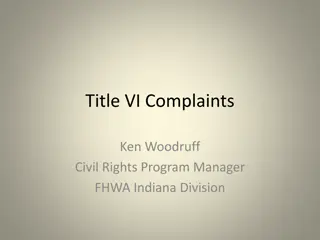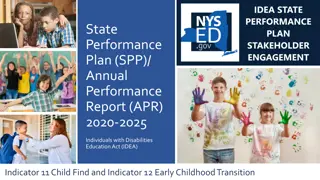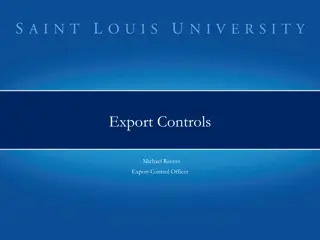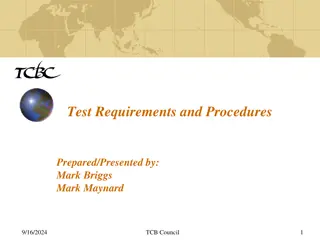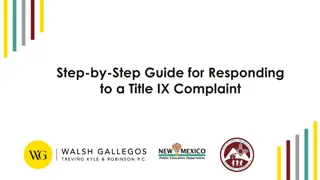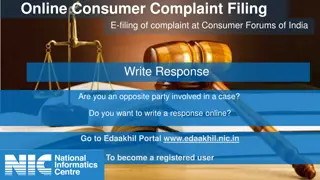Understanding State Complaint Procedures under IDEA Regulations
Explore the guidelines for filing state complaints under the Individuals with Disabilities Education Act (IDEA). Learn about written state complaints, complaint systems, procedures, required elements in complaints, state responsibilities, and who can file these complaints. Understanding these processes is crucial for resolving disputes related to special education services for children with disabilities.
Download Presentation

Please find below an Image/Link to download the presentation.
The content on the website is provided AS IS for your information and personal use only. It may not be sold, licensed, or shared on other websites without obtaining consent from the author. Download presentation by click this link. If you encounter any issues during the download, it is possible that the publisher has removed the file from their server.
E N D
Presentation Transcript
State Administration of: I.D.E.A. Written State Complaints 34 CFR 300.151-300.153 Authority: 20 U.S.C. 1415 (e) [71 FR 46753, Aug. 14, 2006, as amended at 72 FR 61307, Oct. 30, 2007
Disclaimer This resource is not intended to interpret, modify, replace requirements of federal or State law, or serve as a definitive treatment of the regulations. Application of information presented may be affected by State statutes, regulations, departmental and local policies, and any new guidance not issued at the time of this publication.
State Complaint System A strong State complaint system provides parents and other individuals an opportunity to resolve disputes early without having to file a due process complaint and without having to go to a due process hearing. 71 FR 46600 (August 14, 2006)
State Complaint Procedures The S.E.A. must adopt written procedures for the resolving child specific and systemic complaints filed with the S.E.A. , or at the discretion of the S.E.A. , with the public agency responsible for providing services to the student or students. 34 CFR 300.153 (d) and 300.151 (a)(1)(ii)
State Complaints Must Include A statement that a public agency has violated Part B of the I.D.E.A. The facts on which the statement is based The signature and contact information for the complainant If child specific: The name and address of the child The name of the school the child is attending If child is homeless, available contact information and the name of the school the child is attending A description of the nature of the problem of the child, including facts relating to the problem A proposed resolution of the problem 34 CFR 300.153
SEAs Responsibility States are required to resolve any complaint that meets the requirements of 34 CFR 300.153, including a complaint that raises issues that could be considered in a due process hearing, such as the provision of FAPE.
Who can File Parents and any organization or individual may file an administrative complaint directly with the S.E.A. 34 CFR 300.151 300.153
Statute of Limitations Violations must not have occurred more than one year prior to the date that the complainant filed the complaint. States may, however, establish a longer timeline and accept complaints for violations occurring more than one year prior to the date the complaint is received. 71 Fed. Reg. 46,606 (2006). 34 CFR 300.153
Model Forms Each SEA must develop model forms to assist parents and other parties in filing a State complaint. The SEA or LEA , however, may not require the use of the model forms. If the SEA s model form includes content not required by 34 CFR 300.153, the form must identify that content and specify that it is optional. 34 CFR 300.509
Filing of a Complaint The complainant must provide a copy of the complaint to the LEA or public agency serving the child at the same time the complaint is filed with the SEA . An SEA s complaint procedures should address how a complainant s failure to provide the required copy will affect the initiation of the complaint resolution and/or the time limit for completing the complaint resolution. 34 CFR 300.153
Burden of Proof An SEA cannot treat a State complaint like a due process complaint and assign the burden of proof to either party. Letter to Reilly (OSEP 2014).
Mediation The SEA s complaint procedures must provide an opportunity for a parent who has filed a complaint and the public agency to voluntarily engage in mediation consistent with 300.506. 34 CFR 300.152
Systemic Complaints A systemic complaint alleges that a public agency has a policy, procedure, or practice applicable to a group of children that is inconsistent with Part B or the Part B regulations. 34 CFR 300.152, 300.149, 300.600
About Systemic Complaints Alleges same violations apply to a class, category or similar children SEAreviews all relevant information to resolve the complaint If violations identified, the resolution must include measures to ensure correction of the violations for all children affected SEAneeds to examine policies, procedures and practices that may be causing the violations SEA does not need to examine additional children if no violations are identified in the policies, procedures, or practices for the named children. Decision must contain procedures for effective implementation of that decision 34 CFR 300.152, 300.149, 300.600
Complaints Against the SEA An SEA must resolve a complaint alleging that it has violated a requirement of Part B. Regardless of whether the SEA chooses to resolve the complaint on its own or chooses to use an outside party, the SEA must ensure that all of the procedures in 34 CFR 300.151- 300.153 are followed. The SEA must comply with all corrective actions, including remedies, set out in the final decision.
Concurrent Due Process & State Complaints If an issue related to the identification, evaluation, or educational placement of a child with a disability, or the provision of FAPE, or to a disciplinary matter is the subject of both a State complaint and a due process hearing, the State must set aside any part of the State complaint that is also the subject of a pending due process hearing until the hearing officer makes a decision. 34 CFR 300.152
Issue Previously Decided in Due Process Hearing If an issue raised in a State complaint has previously been decided in a due process hearing involving the same parties: The due process hearing decision is binding on that issue. The SEA must inform the complainant to that effect. 34 CFR 300.152
Complaints Alleging Failure to Implement Due Process Decision If a State complaint alleges that a public agency has failed to implement a due process hearing decision, the complaint must be resolved by the SEA . 34 CFR 300.152
About SEAs Responsibility The SEA is in the best position to determine what information is necessary to resolve a complaint, based on the facts and circumstances of the individual case.
LEAs Right to Respond to the Complaint The public agency must be allowed the opportunity to respond to the complaint, including, at the discretion of the public agency, a proposal to resolve the complaint. 34 CFR 300.152
Complainants Right to Provide Additional Information The SEA must provide the complainant with an opportunity to submit additional information about the allegations in the complaint. 34 CFR 300.152
Complaint Timeline An SEA must issue a written decision regarding the State complaint within 60 days of receipt. The SEA may extend this timeline only if: Exceptional circumstances exist with respect to a particular complaint; or The parties involved agree to extend the time to engage in mediation or alternative dispute resolution, if available. 34 CFR 300.152
Complaint Timeline (continued) 60-day time limit for complaint resolution begins on the date that a complaint is received. This includes complaints received electronically. SEA s have some discretion for determining when a complaint is received but must ensure that its procedures allow for timely resolution and are uniformly applied. 34 CFR 300.152
Decision Subject to allowable extensions, the SEA must issue a written decision within 60 days whether the complaint is resolved through the SEA s investigation, or the SEA accepts the LEA s proposed resolution to resolve the complaint. The decision must address each allegation in the complaint and contain: Findings of facts and conclusions, and The reasons for the SEA s final decision 34 CFR 300.152
Corrective Actions States must have procedures for effective implementation of the SEA s final decision, if needed, including: Technical assistance activities; Negotiations; and Corrective actions to achieve compliance. 34 CFR 300.152
Remedies When a State has found that a public agency has not provided appropriate services, the SEA is required to address: The failure to provide appropriate services, including corrective action appropriate to address the needs of the child or group of children The appropriate future provision of services for all children with disabilities 34 CFR 300.151
Posting Decisions There is no requirement in Part B of the IDEA for a State to make written State complaint decisions available to the public.
Timelines for Corrective Actions The SEA must ensure that any corrective action(s) is completed as soon as possible within the timeframe specified in the written decision, and no later than one year following the identification of the noncompliance. 34 CFR 300.600
Appealing Decisions The regulations are silent as to whether a State complaint decision may be appealed. A State may establish procedures for reconsideration of complaint decisions. However, procedures must not delay the implementation of any corrective action required in the SEA s final decision pending the reconsideration process.
